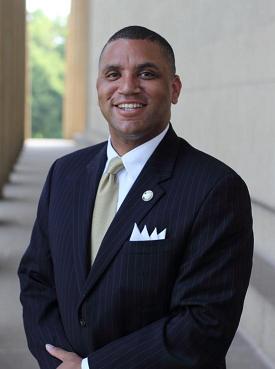When Broken Pieces are Sufficient: The Providential Hand of God
By Rev. Dr. Jason Curry, Columnist
One would naturally assume that there would be benefits, as opposed to consequences, associated with improving our human condition. When we show love toward God, our neighbors, and ourselves, our thoughts and actions are in account with God’s will for our lives (see Mark 12:30-31). However, it is important to note that everyone will not be pleased with the good that we attempt to do.
The Apostle Paul, one of the greatest preachers, authors, and ministers to walk the face of this earth, was imprisoned for the life-changing ministry that he conducted throughout Asia and in additional parts of the world. An angel told Paul that he would stand before Caesar (see Acts 27:24) so that he could talk about the value of Christianity and make his case as to why he should be free.
While being transported to Rome with other prisoners so that he could make his appeal to Caesar, Paul was involved in a shipwreck (see Acts 27:41-44). The ship that was to transport Paul to his destiny to meet the highest official in Rome was destroyed; however, many of the prisoners floated to shore on the broken pieces of wood. After the shipwreck, the guards of the ship thought about killing all of the prisoners who reached the shore; however, they did not kill them. Paul was neither killed by the guards nor the sea. The providential hand of God protected Paul so that he might fulfill his divine destiny.
We, as a Christin people, are like Paul inasmuch as we are attempting to live a life that is in accord with God’s will. As we can see in the life of Paul, God may be pleased with our actions of spreading the words about God’s love through the Gospel or “Good News” of Jesus Christ; however, that message may not be well received by everyone that we encounter.
We will encounter misfortune (e.g., the loss of a loved one) as we attempt to realize the plan that God has placed within us. Like Paul, we may even be persecuted for our actions. Even vehicles which lead us to success (e.g., a fulfilling job, loyal friends, seemingly endless opportunities) may begin to crumble and “break” before our very eyes. Indeed, we have encountered a shipwreck.
However, the scriptures teach us that it is possible to float to our divine destiny on broken pieces. Paul’s testimony to the early church reveals to us in the contemporary church that we serve a providential God, which means that God still provides. Historical scholars inform us that Paul reached his destiny in Rome and we shall reach our divine destiny even if our mode of transportation is “broken pieces.”
The Rev. Dr. Jason Curry currently serves as the dean of the Fisk Memorial Chapel, an Assistant Professor of Psychology, and the Associate Vice President for Institutional Effectiveness and Accreditations at Fisk University. He is an ordained itinerant elder in the African Methodist Episcopal Church and has written various academic articles; a book, The Star Book on Pastoral Counseling; and is a columnist for The Tennessee Tribune.





